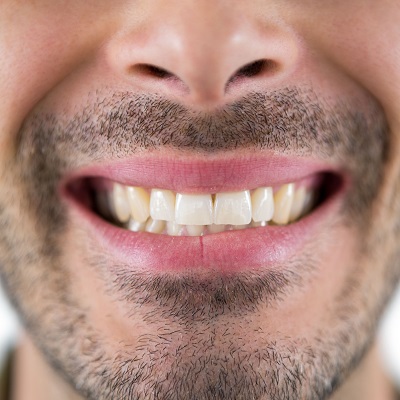Teeth grinding, or bruxism, is a common dental issue that can cause significant discomfort and lead to various dental problems. In Dubai, where stress and fast-paced lifestyles are prevalent, understanding the connection between teeth grinding and sleep apnea is crucial. Research suggests that many individuals suffering from sleep apnea may also experience teeth grinding. Consequently, seeking effective Teeth Grinding Treatment Dubai is essential for managing both conditions.
Understanding Sleep Apnea and Its Symptoms:
Sleep apnea is a sleep disorder characterized by repeated interruptions in breathing during sleep. These interruptions can last from a few seconds to minutes and can occur multiple times per hour. The two main types of sleep apnea are:
Obstructive Sleep Apnea (OSA):
OSA occurs when the muscles at the back of the throat relax excessively, causing a blockage of the airway. It is the most common form of sleep apnea.
Central Sleep Apnea (CSA):
CSA is less common and occurs when the brain fails to send proper signals to the muscles that control breathing.
Symptoms of Sleep Apnea:
Common symptoms of sleep apnea include:
Loud snoring
Gasping for air during sleep
Excessive daytime sleepiness
Morning headaches
Difficulty concentrating
If left untreated, sleep apnea can lead to serious health complications, including high blood pressure, heart disease, and diabetes.
The Connection Between Teeth Grinding and Sleep Apnea:
The relationship between teeth grinding and sleep apnea is complex but significant. Many individuals with sleep apnea unknowingly grind their teeth during episodes of disrupted breathing. The exact mechanisms behind this connection are still being researched, but several factors contribute:
1. Physiological Response to Breathing Interruptions:
When breathing is interrupted during sleep, the body experiences stress and arousal. This can lead to muscle tension, including the jaw muscles, resulting in teeth grinding.
2. Oxygen Deprivation:
Sleep apnea can cause oxygen deprivation, prompting the body to respond with a fight-or-flight mechanism. This stress response can further increase muscle tension and bruxism.
3. Common Risk Factors:
Both conditions share common risk factors such as obesity, smoking, and excessive alcohol consumption. Addressing these risk factors can help in the management of both teeth grinding and sleep apnea.
Symptoms of Teeth Grinding:
Teeth grinding can lead to a range of symptoms, many of which overlap with those of sleep apnea. Recognizing these symptoms is vital for seeking appropriate teeth grinding treatment in Dubai.
Common Symptoms of Bruxism:
Jaw Pain: Persistent pain in the jaw or surrounding areas can indicate teeth grinding.
Tooth Sensitivity: Increased sensitivity to hot or cold foods may result from enamel erosion due to grinding.
Frequent Headaches: Waking up with tension headaches can signal bruxism.
Earaches: Referred pain from the jaw can often feel like earaches.
Diagnosis of Sleep Apnea and Bruxism:
Both conditions require careful diagnosis by a qualified professional. In Dubai, a combination of medical history, physical examination, and specialized tests can help determine the presence of sleep apnea and bruxism.
Sleep Studies:
A polysomnography (sleep study) is often used to diagnose sleep apnea. This overnight test records brain waves, oxygen levels, heart rate, and breathing to monitor sleep stages and detect disruptions.
Dental Examination:
A dentist can identify signs of bruxism through a thorough dental examination. Signs may include worn enamel, cracked teeth, or changes in the bite.
Questionnaires and Screening Tools:
Both dentists and sleep specialists may use questionnaires to assess symptoms and risk factors associated with sleep apnea and bruxism.
Effective Treatment Options:
Addressing both sleep apnea and teeth grinding often requires a multi-faceted approach. Seeking teeth grinding treatment in Dubai can help alleviate the symptoms of both conditions.
Dental Interventions:
Mouthguards: Custom-fitted mouthguards can protect teeth from damage caused by grinding and alleviate jaw discomfort.
Dental Restorations: For severely worn or damaged teeth, restorative dental procedures may be necessary.
Sleep Apnea Treatment:
Continuous Positive Airway Pressure (CPAP): CPAP therapy is often recommended for obstructive sleep apnea. This device keeps the airway open by delivering a continuous flow of air during sleep.
Lifestyle Modifications: Weight loss, quitting smoking, and avoiding alcohol can significantly improve sleep apnea symptoms.
Behavioral Therapy:
Cognitive-behavioral therapy (CBT) can be beneficial in addressing the underlying stress and anxiety that may contribute to both bruxism and sleep apnea.
Stress Management Techniques:
Implementing stress reduction strategies can help alleviate symptoms of both conditions. Techniques include:
Mindfulness and Meditation: Practicing mindfulness can promote relaxation and reduce anxiety.
Physical Exercise: Regular physical activity can help reduce stress levels and improve sleep quality.
The Importance of Seeking Help:
If you suspect that you are experiencing symptoms of sleep apnea or bruxism, it is crucial to seek professional help. Ignoring these conditions can lead to serious health complications and negatively impact your quality of life.
Consult a Dentist:
A qualified dentist in Dubai can provide insights into teeth grinding treatment options and help address any dental issues arising from bruxism.
Sleep Specialist Consultation:
Consulting a sleep specialist can provide comprehensive evaluation and treatment for sleep apnea. Working together, your dentist and sleep specialist can create a coordinated treatment plan tailored to your needs.
Conclusion:
Understanding the link between teeth grinding and sleep apnea is essential for effective management and treatment. In Dubai, where lifestyle factors often contribute to stress and sleep disorders, addressing these issues proactively can lead to better oral and overall health. Effective teeth grinding treatment in Dubai involves collaboration between dental and medical professionals to address both conditions holistically. If you are experiencing symptoms of bruxism or sleep apnea, don’t hesitate to seek professional advice.





Comments